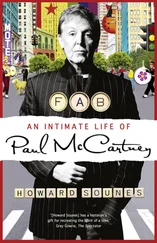And it is in writing that we put down the dullness: both the cooled residue of pure consciousness and the seed of new awareness. Writing is the mediating line spelling out the paradox. Writing is the ongoing imagination and invention of that which has existed since all darkness and absence. It is our way of visibly trying to breathe rhythm.
So what did I bring back from my trip to Berlin? First, a lake of black tiredness like a liquid mirror just below the horizon of wakefulness, threatening to rise at any moment and engulf me in dark oblivion. The Afrikaans word for jet lag is vlugvoos — to have been made spongy, perished or rotten by flight. Then, a jumble of impressions.
Airports have become irksome and dangerous places. The illusion has been punctured. It was probably never going to be ‘normal’ for the human to fly, but these entry zones were intended to lull you into thinking you were in some shopping mall piping soothing music, with service people, polite and efficient, processing you painlessly through the various stations of embarkation, and your fellow-departees interestingly attractive. It was to be painless, though dull. Now it is chaos in there. To get on board is like going into combat: sullen but ill-trained functionaries body-search you and dig into your luggage repeatedly, irritated clerks ask silly questions over and over, waiting lines snake for miles down the corridors, fellow-travelers are disheveled and grumpy, flights are retarded beyond decent delays. In Frankfurt, on the way back, rushing for a connection, I made my way to the head of the line by telling people they should not be fooled by my beard, that I’m actually seven months pregnant. You wouldn’t want me to have a messy miscarriage right here, would you now? An angry woman with glasses spat at me. At the screening posts little old ladies of eighty or more, clutching forms and passports and tentatively tottering on spindly ankles, were ordered to return to the check-in counters and book their umbrellas. One had visions of madly yelling grandmothers spearing pilots and transfixing them to the walls of the cockpit. And once you surmounted these obstacles, were you finally to feel more secure? Of course not. The only slight distraction was to try and spot the air marshal. As the aircraft growled and shuddered to get into the air one was painfully aware of the howling emptiness below.
On board I read a news item about problems at Tel Aviv airport. It would seem that the take-off flight path has planes fly directly over a considerable cemetery. The descendants of Aaron, the Cohens, destined to be priests, are not permitted to enter burial-places so as not to be defiled by death. A ‘solution’ had been found: these believers take their shrouds with them (in effect, plastic body-bags), and zip themselves inside for as long as it takes for the shadow of the plane to move over the impure place. Due to more stringent security concerns, one is no longer allowed to take along your folded death envelope as hand luggage. The authorities worry about people smothering in their sheets. A rabbi who was unwilling to break the rule hired a small private plane to fly him, wrapped in his shroud, to Cyprus where he boarded a regular connecting flight to London.
We are moving into a whole new world. On an incoming aircraft a gentleman got up from his seat shortly before landing and hurriedly made his way to the forward toilet. Time and bladder have their own pressing habits. Immediately two flight attendants and a third person in civilian clothes (obviously the air marshal) floored and overpowered the hapless man, holding a cocked gun to his head, and all the other passengers had to stick ’em up before placing same on the backs of the chairs in front of them. The trussed man apologized profusely, explained that he is a full-bladdered lawyer, to no avail. (Being from Mexico, his skin was also the color of sunned wind.) The plane landed, agents came on board to take the unthinking fellow in custody, and he was only released hours later, sopping wet by then one presumes.
I crouched in my seat and promptly tried to get drunk. Just before leaving the house I learned about the death of my mentor and old friend, Jan Rabie, far away in South Africa. I was told that it had been hot and sultry there for quite some time. He would have been uncomfortable with the early season heat, lying in his bed in a home for the terminally weak. He’d been suffering from Alzheimer’s for a number of years already. He had become shrouded in grayness. The last time I visited him there he recognized me immediately, but it was as if he had to come back from far to focus; Golden Lotus and Gogga were with me, and he insisted on speaking French. On the 14th, last week, he had his 81st birthday, and the next day his heart stopped. Maybe he’d tried to sit up, to get one last look of the blue mountain wall behind and the ocean rustling below, smell the wind and taste the salt. He’d been a singular traveler, always going against the trends of his time, execrated by the bourgeoisie, so little understood, denigrated even by his fellow writers. . How I loved him.
I tried to write an angry poem about our ranks being thinned out, and how futile our battle against the subversive and sly and cruel Dog Death is turning out to be.
Some months later his wife, Marjorie, the painter and mistress of gossip, will have a massive brain hemorrhage on the opening night of a retrospective exhibition of her work in Fools Forest. When Jan was too weak to resist she used to go to the hospice where he lay at lunchtime and eat up all his food. Now she will end up in the same place. When she finally comes to and is less befuddled she will ask after her departed husband, he has left and she doesn’t know where he is. Friends will gently remind her that he’s dead and gone, but she will contest that and tell them she has been reading the obituaries in the daily newspaper and there was nothing about Jan.
On the German side, when you arrive, matters are more relaxed. You step high and try to look sober. The autumn days are blustery but clear. Many men have clipped moustaches and short, graying hair. They go dressed in long, elegant coats of good cloth. The women are noticeably slimmer than those on this side of the Atlantic. They use little visible make-up and wear their hair loose. Their feet seem to be narrow and their shoes are shined to a high gloss. People carry briefcases (there are few backpacks to be seen) and stride purposefully. Many have folded newspapers that they then open with crackling sounds as if unveiling revelations. They frown their brows and make snorting noises. On the front pages there are reports of the war in Afghanistan and photos of summary executions carried out brutally. Some of the headlines are in Gothic script. Articles describe how a Green Party minister in a three-piece suit voted with the senior coalition partner, the German Socialist Party, to send soldiers to the war, and then speculate about how this may break the ruling alliance. I wasn’t used to being in an environment where people are in appearance so homogeneous, so predominantly white . The streets in Berlin are smooth and clean and often tree-shadowed. I saw no dogs outside. The buildings sometimes have colored facades and the windows are double-glazed. The Tiergarten is aflame with the slow fire and rust of the dying season. Despite growing economic difficulties there still is a lot of good money in Germany. You can smell it on the soft necks of people when you embrace them or on their manicured hands.
The conference was a textbook example of wasted effort, energy and money. Well, perhaps not entirely so. One of the working documents was a recently approved UNESCO declaration on the rightto (cultural) diversity. Although it was written in the regular gray putty of Internationalese, clearly the product of many a compromise arrived at through dull and cynical committee chugging and slugging, it still constitutes a reference point of legitimacy for the oppressed or ignored minorities of the world. Under the title, “The Global Dimension of Cultural Policy,” the conference grouped UNESCO bureaucrats responsible for the implementation of that strange institution’s cultural policies, those running the “Haus der Kulturen der Welt” in Berlin, directors and other top dogs of the Goethe-Institut and the Institut Français and the British Council, and random stragglers and strugglers of culture and creativity.
Читать дальше












